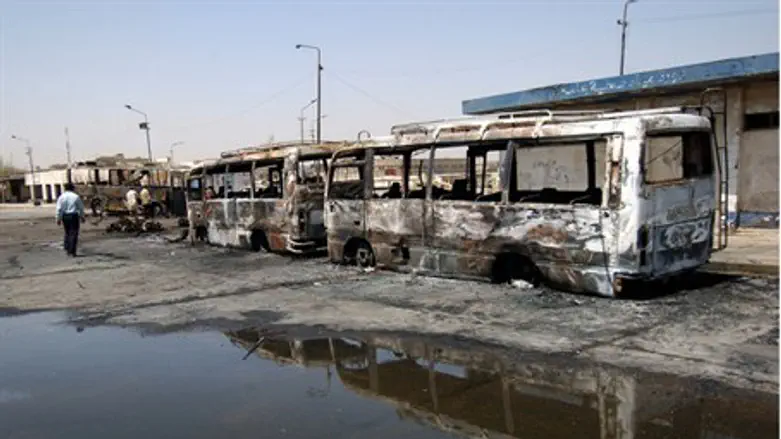
A series of deadly bombings killed at least 69 people in the capital Baghdad on Thursday in what officials described as a "political message."
The blasts mark the first major attack following a sectarian crisis in the Iraqi government which sidelined Sunni political rivals to Prime Minister Nouri Al Maliki.
At least 18 people were killed when a suicide bomber driving an ambulance detonated the vehicle near a government office in Baghdad's Karrada district. In all, at least 69 people were killed and 200 were wounded in more than ten explosions across Baghdad.
The bombings are the worst in months and come after US troops completed their withdrawal. Most of the targeted districts were Shiite.
"The timing of these crimes and the places where they were carried out confirm to all... the political nature of the targets," Al Maliki said in a statement.
It was not immediately clear who was behind the attacks, however analysts say the level of co-ordination suggests a planning capability only available to al-Qaeda in Iraq, which is a mainly Sunni insurgent group.
Iraq is still fighting an insurgency with Sunni Islamists tied to Al Qaida and Shiite militias - who US officials say are backed by Iran.
However, according to classified memos released via wiki-leaks, Iraqi officials have repeatedly complained to US military officials over the years that they also face a Saudi-backed insurgency as Riyadh and Tehran vye for control of the Persian Gulf.
"We live in complicated circumstances, a complicated political scene and there is a conspiracy on Iraq from within," Baghdad security operations spokesman Qasim Al Mousawi told Gulf News.
The administration of Barack Obama said it strongly condemned the attacks.
The continued decline of security conditions in Iraq has led to sharp criticism of Obama's dogged decision to exit Iraq and fulfill a 2008 campaign process as he prepares to run for reelection.
Should Iraq implode, security officials warn, it could have dire and far reaching consequences for not only the region, but US strategic interests vis-a-vis containing Iran and pursuing Washington's global War on Terror.